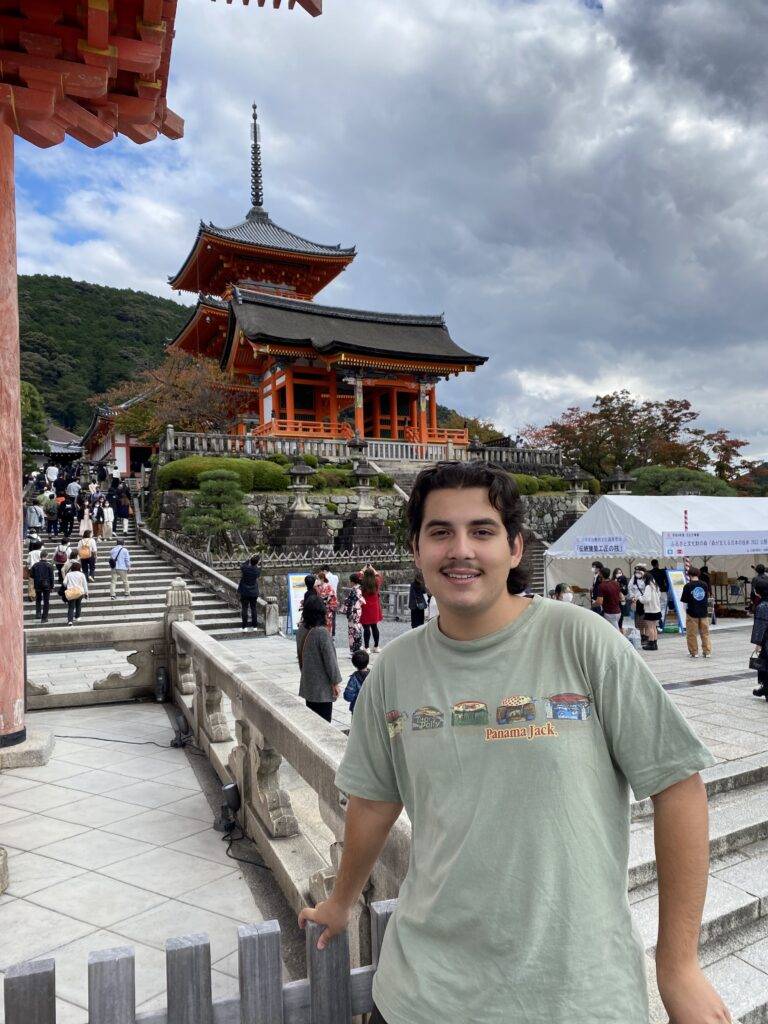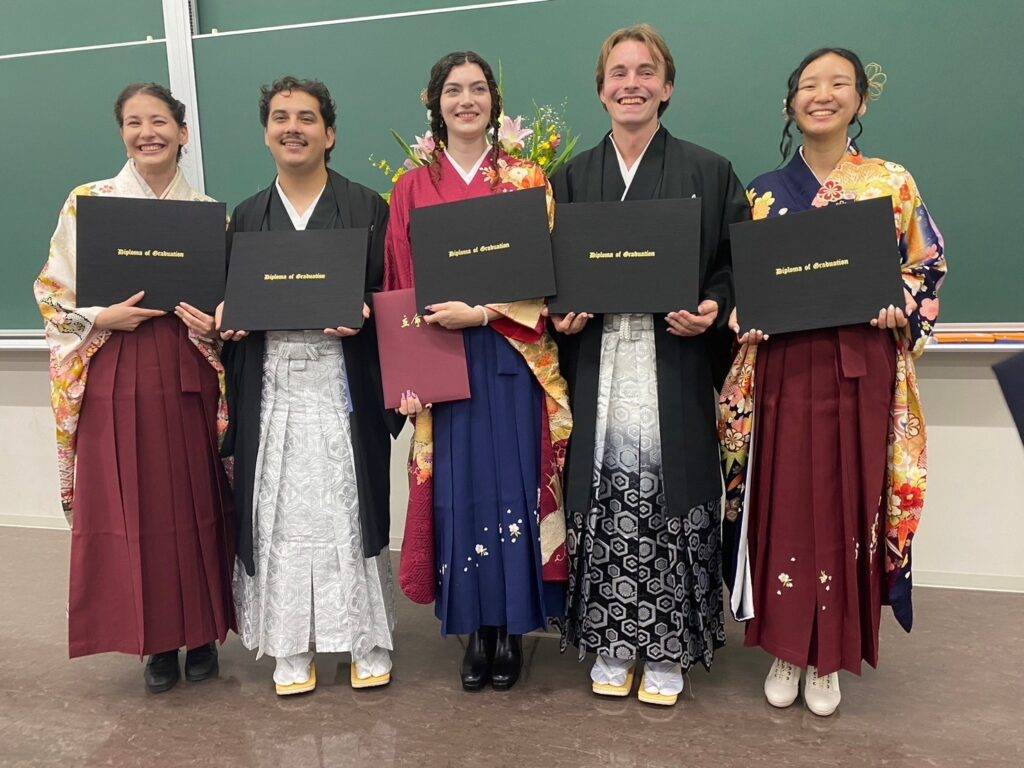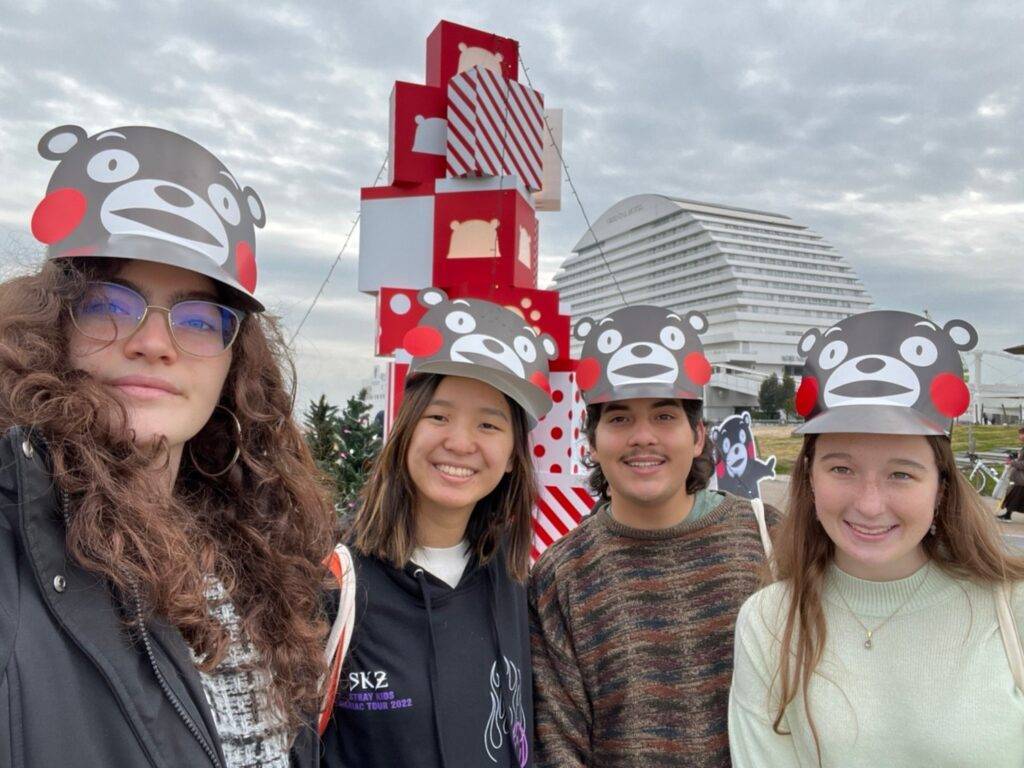
Joseph Lind
2023-2024 Tanaka & Green Scholar
While completing the extensive amount of paperwork required by the Japanese bureaucracy prior to embarking on my studies at Ritsumeikan University in Kyoto, I was thrilled to finally make the actual journey. I lacked the anxiety related to culture shock and travel that some of my peers expressed, which I attributed to my previous experience living in Okinawa as a middle-schooler. Although culture shock was not much of a shock to me—more of a minor adjustment—my two experiences in Japan were vastly different.
Instead of culture shock, I had to face something different: a confrontation with old memories and the reimagination of Japan through the lens of a young adult. I would describe pre-Kyoto Joseph as rather naïve, holding a somewhat romanticized, child-like image of Japan based on the fuzzy recollections of an 11-year-old. This naivety stretched into the realm of my political conception of the U.S.-Japanese relationship. Specifically, I was under the false belief that the U.S.-Japan relationship was a strong one. While this is not untrue, that is precisely the point where my understanding ended as a young child. I came to realize that this was not the full story. The bilateral relationship has been tested many times, facing countless trials and tribulations.
At first glance, the relationship might seem flawless, but a deeper investigation reveals underlying disagreements that persist today. Yet, learning of this imperfect nature made me realize something fundamental: despite their differences, the shared values between Japan and the United States are enough to allow the relationship to thrive. This is especially important given the shared threats and challenges that the two countries must face together. Recognizing this, I have become empowered to strive to be a deciding factor in how to combat these newfound challenges while simultaneously pursuing common goals. Despite the mental gymnastics that occurred during my first few months in Kyoto, as I tried to reconcile my new experiences with those of the past, my view on Japan only became more nuanced and mature.
Coinciding with the evolution of my view of Japan, my experience in Japan affirmed and solidified my deep-rooted aspiration to serve as a bridge between the United States and Japan. My understanding of the politics of the region was strengthened by allowing myself to learn from professors, peers, and my community. I believe this would not have been possible if I had remained in the United States throughout my undergraduate tenure. Among the numerous classes I had the privilege of participating in were Foreign Relations of Japan, Japanese Politics, and U.S.-Japan Relations.
In addition to these courses, I also learned about other related fields, including courses that focused on other countries. I expanded my horizons regarding my geographical area of interest to include the Indo-Pacific as a whole, with a particular emphasis on the Korean Peninsula and China to complement my long-standing passion for U.S.-Japan relations. I find this particularly noteworthy as I began to understand how the U.S.-Japan bilateral relationship is not an isolated one but rather a singular part of an ever-evolving, interconnected system of relationships. Notably, I had the opportunity to learn from a diverse array of peers, many of whom were from Japan or other Asian nations that were the geographic focus of the class. Allowing myself to learn directly from my classmates was truly an invaluable experience that simultaneously challenged and helped me discover my core beliefs. Geography was not the only way my interests broadened, however. I was also able to take courses in International Law and was honored to compete and earn an individual award for outstanding oral communication as I represented my university at the national championship for JESSUP, an international competition devised to build and test university students’ understanding, application, and argumentation of international law.


During my two years at Ritsumeikan University, I was able to cultivate my Japanese language skills to a level that I had not reached in the previous six years of language study. What I learned in the classroom was further enhanced by experiences outside of the classroom, whether it was reading the signs at the nearest train station or asking shopkeepers for advice on how to properly put on a hakama. I also picked up new hobbies. Shortly after arriving in Kyoto, I found myself fascinated with the traditional culture that the cultural heartland of Japan still enshrines. I made it my mission to visit as many of the thousands of temples and shrines scattered around the city. By the end of my time in Japan, I had hundreds of goshuin, or red-ink stamps, to commemorate my journey to each one I ventured to.
Interestingly, instead of satisfying my intellectual curiosity, this experience has made me acknowledge the insatiable nature of my quest for knowledge and has intensified my desire to learn and explore even further. While I plan to pursue a Master’s degree in the future, my current focus is on honing the skills I have acquired during my experience in Kyoto while developing new, practical skills through professional work back in the United States. This first leg of my journey as a facilitator of U.S.-Japan relations was all made possible through the support of the Tanaka & Green Scholarship and the Japan-America Society of Washington DC. For this, I would like to extend immense gratitude as I continue along this path in search of my next adventure.
Must check - WP faq support by geometricbox
